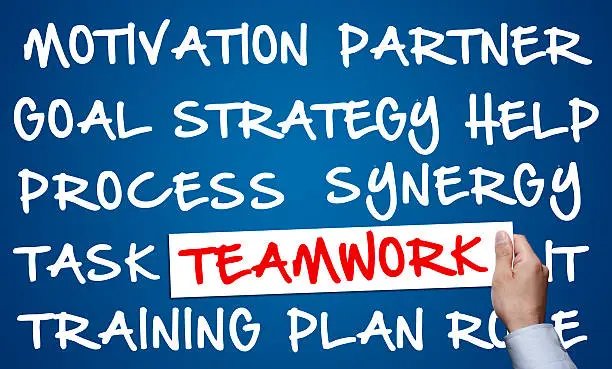If you’ve ever wondered what sets successful people apart, one major factor often overlooked is interpersonal skills. These skills—how we interact with others—play a massive role in our careers, relationships, and overall personal growth. Whether you’re trying to climb the corporate ladder, grow your business, or simply improve your social circle, sharpening your interpersonal skills is essential.
Let’s dive deep into the world of interpersonal skills and see how they can help you get ahead in life and work.
What Are Interpersonal Skills?
At its core, interpersonal skills are the abilities we use to communicate, interact, and build relationships with other people. They include everything from verbal communication to body language, empathy, and active listening.
Think of interpersonal skills as the glue that holds personal and professional relationships together. Without them, even the smartest, most talented individuals can struggle to succeed because they can’t effectively connect with others.
Why Are Interpersonal Skills Crucial for Success?
You might ask, “Why bother?” Well, the answer is simple. Whether you realize it or not, you constantly rely on interpersonal skills in every area of your life.
- Career Growth: Promotions and leadership roles often require more than technical expertise—they need the ability to inspire, communicate, and manage teams.
- Relationships: Strong connections depend on empathy, trust, and clear communication.
- Teamwork: No matter how talented you are individually, working well with others can make or break projects.
Companies like Google and Apple consistently rank interpersonal skills as top hiring criteria, emphasizing their importance over technical skills alone.
Key Interpersonal Skills to Develop
Let’s explore some of the most critical interpersonal skills you should focus on.
Communication
Effective communication is the foundation. It’s not just about talking—it’s about how clearly and confidently you convey your ideas. This includes:
- Verbal Communication: How you speak, tone, and choice of words.
- Non-verbal Communication: Body language, facial expressions, and eye contact.
Remember, sometimes what you don’t say speaks louder than words!
Empathy
Ever heard the phrase, “Walk a mile in someone else’s shoes”? That’s empathy. It’s about understanding others’ feelings and perspectives. This skill helps build trust and rapport, making people feel valued.
Active Listening
Most people think communication is about talking, but active listening is equally important. It means fully focusing on the speaker, avoiding interruptions, and reflecting back what you hear.
How to Improve Your Interpersonal Skills
Improvement comes with practice and intention. Here are some actionable ways to boost your interpersonal skills:
Seek Feedback
Ask trusted friends or colleagues how you come across in conversations. Constructive criticism helps you spot blind spots.
Role-Playing and Practice
Simulate real-life social scenarios with friends or mentors. This builds confidence and prepares you for difficult conversations.
Take Communication Courses
Formal training, like workshops or online courses (think Coursera or LinkedIn Learning), can provide useful frameworks and tips.
Interpersonal Skills in the Workplace
In professional settings, interpersonal skills take on specialized roles.
Teamwork
Great teams communicate openly, share ideas, and respect each other. Being a cooperative and reliable team member makes you indispensable.
Leadership
Leading isn’t about bossing people around. It’s about inspiring, motivating, and guiding others toward a shared goal.
Conflict Resolution
Disagreements happen, but managing them constructively can turn challenges into opportunities.
Common Challenges and How to Overcome Them
Overcoming Shyness
If social situations make you nervous, start small. Practice talking to strangers in low-pressure environments like cafes.
Handling Misunderstandings
Miscommunication is normal. Stay patient, clarify intentions, and avoid assumptions.
Emotional Control
When tensions rise, keep calm. Breathing exercises or taking a pause can help you respond thoughtfully rather than react impulsively.
The Role of Emotional Intelligence (EQ)
Emotional intelligence is tightly linked with interpersonal skills.
What is EQ?
EQ is your ability to recognize, understand, and manage your emotions—and those of others. It includes self-awareness, self-regulation, motivation, empathy, and social skills.
How EQ Improves Relationships
People with high EQ handle stress better, communicate clearly, and build stronger relationships, which is why leaders like Daniel Goleman emphasize its role in success.
Technology’s Impact on Interpersonal Skills
We live in a digital age where much communication happens online.
Pros and Cons of Digital Communication
Tools like email, Zoom, and Slack make communication faster but can also lead to misunderstandings due to lack of tone or body language.
Balancing Online and Offline Interaction
Make time for face-to-face conversations whenever possible to maintain deeper connections.
Success Stories: How Interpersonal Skills Helped Leaders
Oprah Winfrey’s Empathy
Oprah’s ability to connect emotionally with people helped her become one of the most influential media personalities worldwide.
Satya Nadella’s Communication Style
Under Nadella’s leadership, Microsoft transformed by fostering a culture of openness and collaboration, proving the power of strong interpersonal communication.
Conclusion
Interpersonal skills are your secret weapon to get ahead in both your personal and professional life. They empower you to communicate effectively, build lasting relationships, and navigate challenges with grace. The good news? Anyone can develop these skills with practice and patience.
Start today—listen more, empathize deeper, and watch your world change.
FAQs
Q1: Can introverts develop strong interpersonal skills?
Absolutely! Introverts often excel in deep listening and thoughtful communication, which are core interpersonal skills.
Q2: How long does it take to improve interpersonal skills?
Improvement varies by individual, but consistent practice over weeks or months can lead to noticeable changes.
Q3: Are interpersonal skills more important than technical skills?
Both are important, but interpersonal skills often determine how far you advance in your career.
Q4: Can technology replace face-to-face communication?
Technology is a helpful tool, but it can’t fully replace the nuances and emotional connection of in-person interaction.
Q5: What’s the best way to handle difficult coworkers?
Use active listening, empathy, and remain calm. Address issues privately and seek common ground.





